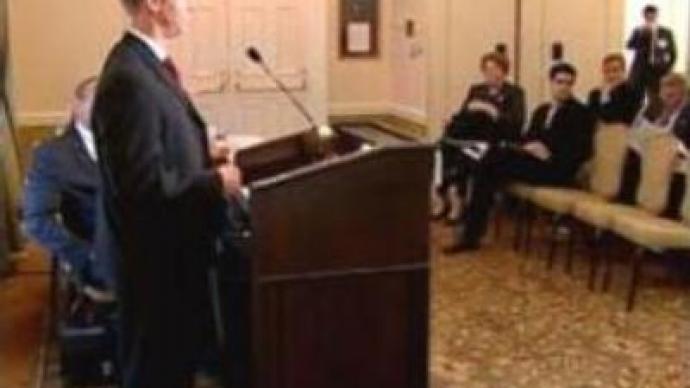Academics ponder strained Russian-U.S. relations

Russian-American relations have been the focus of a high-profile forum in the U.S., where scholars and international relations experts have expressed concerns over what they see as deteriorating relations between the two countries.
This year Russia and the U.S. are marking the 200th anniversary of diplomatic relations, but tensions between the two countries have been running high recently. Disagreements over the U.S. policy towards Iran and Iraq, the missile defence deployment in Central Europe and Russia's criticism of the U.S. State Department's Human Right report, have only strained relations.“It seems like both countries are picking a little bit more on each other, President Putin's remarks in Munich were fairly negative and out loud towards the U.S. and the White House and the State Department have been loud and negative towards Russia, so I think both countries have put more strain on each other than in the past,” said Yury Mamchur, from the Discovery Institute in Washington DC.“Well it certainly has caused a severe deterioration of relations and it concerns me a great deal, for its extended impact on the U.S. Russia capacity to co-operate in important areas and on important matters,” said Professor Herbert Ellison, University of Washington.Former Congressman and State Department official, Ambassador John Miller, said that while the two countries do not always see eye-to-eye, the increased rhetoric from both sides will not lead to a new Cold War, as some have suggested.“I don't think rhetoric by itself is going to harm relations, I think there are underlying factors that are going to be more important than rhetoric. Obviously from the point of view of the Americans the state of democracy in Russia, the evolution from the Stalinist totalitarian state is very important,” he noted. In Moscow, the Head of the Russian Security Council, Igor Ivanov, said that the long-term prospects for U.S.-Russia co-operation remain on track.“There is an understanding that the problems of the modern world should be resolved by joined efforts. Russia is an active participant in all the serious processes that are going on in the world today. Take, for instance, the non-proliferation issues, or the counter-action to the nuclear terrorism threat. These are the issues on which we are able to find a common language with the U.S. and other partners,” he noted.In a move to improve relations between the U.S. and Russia, the U.S. Secretary of Defense, Robert Gates, will visit Moscow next week. The controversial plan to deploy a missile defence shield in Central Europe will be among the topics of discussion.
You can share this story on social media:












